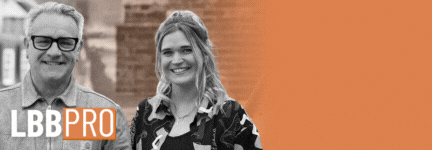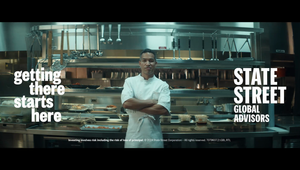
The Directors: Kinopravda

Kinopravda is a powerhouse collective of international directors - based in Barcelona, Budapest, Athens, and LA - with one goal: TAKE OVER THE WORLD... and make a few cool pieces in pursuit.
Their unique art direction and elevated conceptual work has garnered them numerous Vimeo Staff Picks as well as a Young Directors Award. Not to mention notable campaigns for Smirnoff, Venetian, Axe, Disney, and Hasbro, along with acclaimed music videos for Chet Faker and Cuco.
The team always has an emphasis on elevating the projects they work on by injecting stylish visuals, attention to every detail, and their distinct tongue-in-cheek humour.
Name: Kinopravda
Location: Los Angeles, Barcelona, Budapest, Athens
Repped by/in: Imposter (in the US)
Awards:
● Cannes Young Director Award in 2016
● 2016 Official selection at Berlin Music Video Awards (Yvein Monq-TWUN)
● 2021 Music video of the week Berlin Music Video Awards (Gloria - PTS)
● 2016 and 2019: Official selection at South by Southwest Film Festival, Austin, Texas
● Multiple Vimeo Staff Picks and Vimeo Best of the Month (Gloria - PTS)
LBB> What elements of a script sets one apart from the other and what sort of scripts get you excited to shoot them?
Kinopravda> For us, each script mostly comes down to how many variables there are, how much freedom there is for us to play. The more we can add, the more personal the result will be. And the more personal we can make it, likely the more excited we’re going to be.
LBB> How do you approach creating a treatment for a spot?
Kinopravda> Normally we highlight the keywords and the most important aspects. Then we deconstruct the script and put it back together with as many visual aids as possible. We start throwing in ideas and then the rest falls into place.
LBB> If the script is for a brand that you're not familiar with/ don’t have a big affinity with or a market you're new to, how important is it for you to do research and understand that strategic and contextual side of the ad? If it’s important to you, how do you do it?
Kinopravda> It’s absolutely essential to understand the brand, where it comes from, and their goals with the project we’re handling. So yes, research is a crucial part of the process. It’s always good to ask the agency about the brand and check all the latest campaigns, even if they’ve been made by other agencies, just to get an idea of how the brand has communicated in the past.
We also do our own research into other ads from the same industry, to understand the landscape and how this brand fits into it. As we start to define the direction we are going in, we look further into techniques, styles, and so on. Creating this base of knowledge, references, and inspiration helps us a lot throughout the whole process!
LBB> For you, what is the most important working relationship for a director to have with another person in making an ad? And why?
Kinopravda> Our relationships with agency creatives are very important. They’ve spent a lot of time and energy working for their brands, and should be your closest collaborators. This relationship sets the mood for the whole working process. There are always discussions, some may even be quite heated, which you shouldn’t shy away from. It’s part of the process! All of this is important to experience, and once you’re on the same page the whole project jumps to the next level of quality (and fun)!
LBB> What type of work are you most passionate about - is there a particular genre or subject matter or style you are most drawn to?
Kinopravda> We’re drawn to storytelling with strong art direction that massages your senses, and from time to time makes you laugh. Cinema has its own way of surprising you and (maybe even) giving you goosebumps, our mission is to find the best way to achieve that effect.
LBB> What misconception about you or your work do you most often encounter and why is it wrong?
Kinopravda> We’ve done a lot of shoots with very colourful, stylised sets. People have come to expect that in all of our work, but it’s not the only thing we do. We have a lot more versatility and interest in the types of projects we’d like to take on and prefer to not be pigeon-holed.
LBB> Have you ever worked with a cost consultant and if so how have your experiences been?
Kinopravda> From time to time we hear about notes from client cost consultants, but usually it’s something the production house handles. At Kinopravda, we have two producers working in the team, so we always have someone to consider each situation and offer alternative solutions. We do our job, they do theirs.
LBB> What’s the craziest problem you’ve come across in the course of a production – and how did you solve it?
Kinopravda> One of us fell into a hole on set and had to be taken to the hospital. He directed via video call on the way to the ER.
LBB> How do you strike the balance between being open/collaborative with the agency and brand client while also protecting the idea?
Kinopravda> Every case is different. We’re never too lazy to explore something just to prove that it’s not the best call for a given situation. We also like to show them how our idea could be better for their goals. Instead of pushing back, we’d rather discuss and try to prove our point in a professional way. It’s important to have something to back up our ideas so we’re not just engaging in a war of words.
LBB> What are your thoughts on opening up the production world to a more diverse pool of talent? Are you open to mentoring and apprenticeships on set?
Kinopravda> Of course!! True diversity and opportunity is long overdue in the commercial and film industry, and being in positions of power, it’s something we should all consider each time we walk onto set. And yes! Mentorship is extremely important. We’ve all been at the start of our careers and needed a guide, it’s important to share our experience to help others grow and learn.
LBB> How do you feel the pandemic is going to influence the way you work into the longer term? Have you picked up new habits that you feel will stick around for a long time?
Kinopravda> We learned that 60% of our job can be done via Zoom calls. That will probably stay with us whether we want it to or not. It’s not necessarily a bad thing, but sometimes sitting together to work, or looking at a set or location in person is more effective.
LBB> Your work is now presented in so many different formats - to what extent do you keep each in mind while you're working (and, equally, to what degree is it possible to do so)?
Kinopravda> Ideally, each format would have a dedicated shot/time frame on set. When it does, we always spend time polishing it so it works best wherever it’s meant to be used. We prefer each format of the work to be given the time and attention it deserves so that the work is always seen in the best quality possible. But unfortunately, the versions for different formats usually end up being cut downs and snippets from the main footage. Keeping markers on our monitor helps us make sure we are considering the various framings.
LBB> What’s your relationship with new technology and, if at all, how do you incorporate future-facing tech into your work (e.g. virtual production, interactive storytelling, AI/data-driven visuals etc)?
Kinopravda> We’re not the most techie guys, but we’re enthusiastic about new possibilities. If it comes our way, we usually handle it by creating a romantic mixture of the contemporary and the old school.















